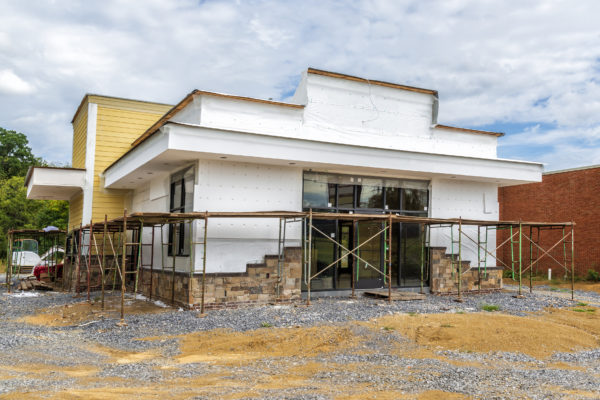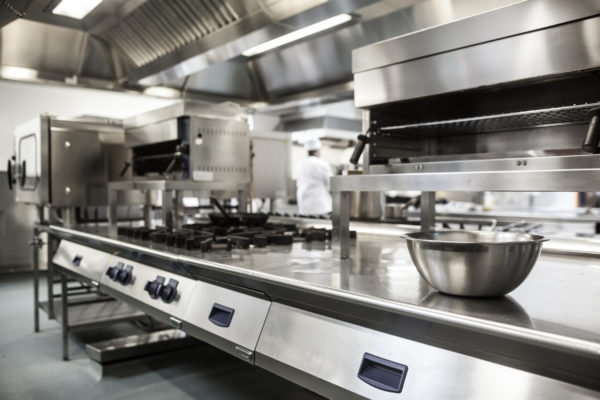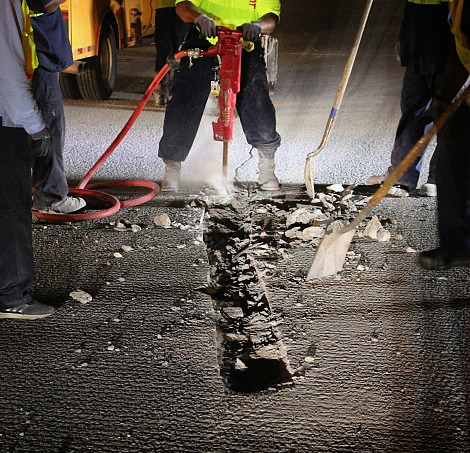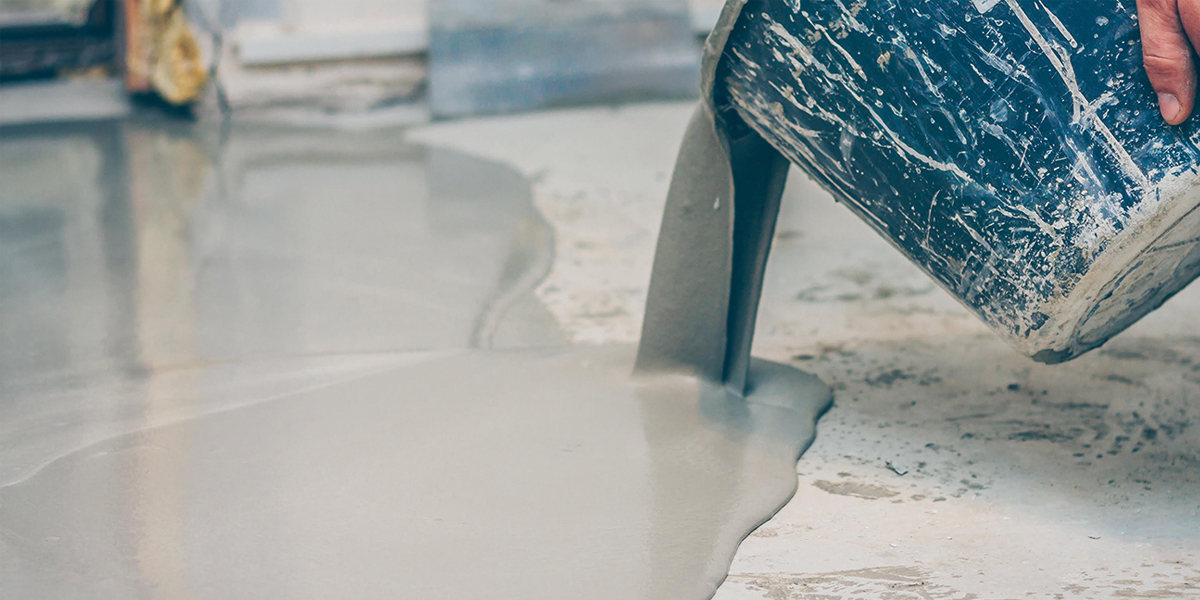
In commercial kitchens, the flooring is just as important as the oven and the chef. When it’s good, it makes the whole kitchen run more smoothly. But if it’s slippery, cracked or delaminating, it can cause a number of headaches. Bacteria can grow and pooling water can add to hazards for the staff.
Unfortunately, flooring can be one of the last considerations when planning new construction or a remodel when it should be one of the first.
In order to ensure a successful installation, and a long-lasting floor, you need to answer a few questions before the job starts. Here are some things you should think about when choosing the right commercial kitchen flooring.
1. Remodel or new construction?
If the floor is being installed in a new construction project, the concrete needs to be fully cured, which can take up to 28 days. Some products can be installed over “green” concrete less than 10 days old.
Remodels need to be evaluated by a certified applicator to determine if removal of old flooring is necessary. In most cases, the answer is yes. Many ask if a resinous floor can be installed over existing tile. The answer is…sometimes. And if an installer tells you yes without looking at it, run away, fast. For more on installing over tile, watch this video.
Resinous flooring will only bond to a porous surface, so tile would have to be ground or shot blasted to open it up. Areas where tile has come off or is cracked should be patched with an appropriate product. We recommend RT-05 LM Polymer Concrete Remember though, that the manufacturers’ warranty only applies to the bonding surface, so if tile delamination occurs underneath the new floor, it may not be covered.
This is why it is highly recommended to remove all old flooring before installing your resinous flooring system.
2. What kind of kitchen is it?

There’s a big difference between a full service kitchen with a full cook line and one where pre-made food is only warmed before consumption.
A “production” or “service” kitchen usually indicates full food preparation and service. Equipment can include gas ovens, fryers, griddles, etc that operate at high temperatures and produce a great deal of heat, grease, and odor. These conditions, along with the water used to clean vegetables and wash dishes, can create hazards that call for a heat and slip-resistant flooring solution that will be safer for workers and comply with FDA regulations.
A “finishing” or “warming” kitchen refers to an area where the food has been prepared offsite and is just being re-heated for serving. Most equipment is electric, no grease is produced and the heat used is at much lower temperatures.
While a warming kitchen may start as a place to heat up food, code compliance officials and health inspectors know that as a business evolves, what occurs in the kitchen could change. This is why sometimes grease traps and non-slip flooring may still be required. It’s important to check your local regulations.
3. Installation Timeline

Your timeline can affect which flooring system you choose, since cure time may be a factor. Other factors to consider are based on which type of install you’re having done.
New construction projects can usually be scheduled according to the plans and coordinated with other sub-contractors. However, be sure the area is dried in, since rain or other moisture can completely derail a flooring project. We’ve seen firsthand what can happen with a leaky roof or if there’s unmitigated moisture in the substrate.
Remodels typically need to be completed quickly to keep shutdowns to a minimum. Time should be allocated for equipment removal and surface preparation prior to the installation.
4. Budget

Ahh the budget, the thing everyone asks first. How much is this gonna cost me?
Well, all the factors mentioned above play a part. And, a more decorative finish will cost a little more than an industrial look due to the labor and materials required to create that look.
Your budget will dictate your flooring choice to some extent, but you shouldn’t let it rule the roost without taking the other elements into consideration. Ever heard, you get what you pay for? The same applies in flooring.
The wrong system or installation will cost you more in the long run due to repairs and replacement. This is why we take all aspects into consideration and make recommendations based on your needs. But we don’t cut corners, and neither do our certified applicators.
We’d rather not do the job than know we left you with a floor that’s bound to fail. How many manufacturers will say that?
Our applicators are vetted and trained by us so you can count on their skills and experience to have the job done right. And if there are any problems, we’ll work with everyone involved to make it right.
Commercial flooring is a very important component of any foodservice operation and will last a long time if chosen and installed correctly. But if selected as an afterthought, it will surely cost you more down the road.
As you can see, there are a variety of factors to consider when making these decisions. These are questions we ask all our end-user customers in order to understand their needs and better serve them.
Our goal is to provide a high-performance flooring solution that will last for years without issue. If that is your goal too, please contact us today.





